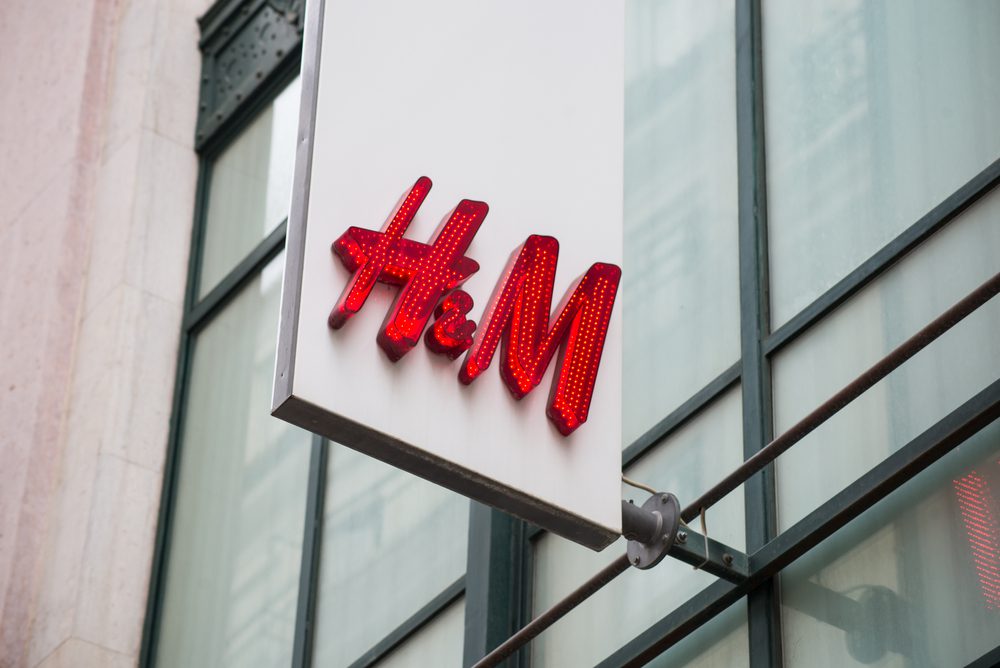
1. H&M
Hennes&Mauritz, known simply as H&M, is a Swedish fashion retailer that is no stranger when it comes to their workers’ human rights controversies. The company had dealt with allegations of neglecting their workers’ rights in several of their production factories. In addition to that, the sustainability practices which they have tried to implement have also drawn criticism in the last years.
According to some sources, it has been found that the company has been using child labor in their fabrics in Cambodia, Myanmar, and Bangladesh. The kids were treated very badly, and for their numerous hours of work, they didn’t receive enough money to compensate for the poor conditions. They were paid as little as 13 cents an hour, which is practically slavery if you think about it.
In 2018, their profits fell sharply, which may suggest that their customers found out about their work ethics and decided to stop supporting the brand. However, it seems like H&M doesn’t care that much about people, just as long as they are reaching their goals. In a public statement, the company was quick to save their skin, by pointing out that in Myanmar, the legal working age is 14.
Unfortunately, despite the many controversies regarding their work ethics and child labor, it seems like H&M doesn’t plan on changing its ways anytime soon.
2. Microsoft
When we think about Microsoft, what we have in mind is its high reputation as a philanthropic pioneer and top employer. In October 2018, the giant had faced several allegations regarding child labor, which was used to extract cobalt in one of their fabrics in the Democratic Republic of Congo (DRC).
In conformity with a group of investigators for Amnesty International, it has been found that children as young as 7 are mining the product in poor and toxic conditions for as long as 12 hours a day.
The company took action to address the allegations, and in 2018, they put together a report to show the actions they had taken to abolish this practice.
Even though Microsoft had shown that they took action, Amnesty is still doubting their intentions. In conformity with some reports, real proof has been found that shows some changes on the ground in DRC, but there is still a long road ahead before meeting their international standards.
3. Philip Morris
The tobacco industry is no stranger when it comes to being a public enemy due to child labor. It has been found that the U.S. cigarette giant company Philip Moris (which owns Marlboro), is well-known for its history of exploiting kids.
Surprisingly or not, in 2010, the Philip Moris company admitted that kids as young as 10 had been exploited for work on some of their contracted tobacco farms in Kazakhstan. They received many allegations by the Human Rights Watch (HRW), suggesting that the children’s passports had been confiscated, so they wouldn’t be tempted to escape.
In conformity with HRW, the company wasn’t very prompt to implement their suggestions for resolving the problems. In 2018, some journalists from The Guardian conducted an investigation on some of the company’s tobacco farms. They found that in Malawi, child labor is “rampant”.
4. Sports Direct
It seems like some of the largest companies in the world are all linked together by some bad practices, such as child labor. The UK-based clothing and sports equipment company named Sports Direct, and Mike Ashley, its owner, have come under fire several times, due to their shady employment practices. But now, they can add another type of bad behavior to their list: child labor.
One of their clothing lines, Lonsdale, is one of the most important parts of the company’s public brand, and it is produced in factories in Myanmar. Some of the workers from these factories described their work conditions as being hard.
The company doesn’t seem to be scared, bothered, or concerned, though, describing the employees’ comments as “anecdotal and uncorroborated”.























